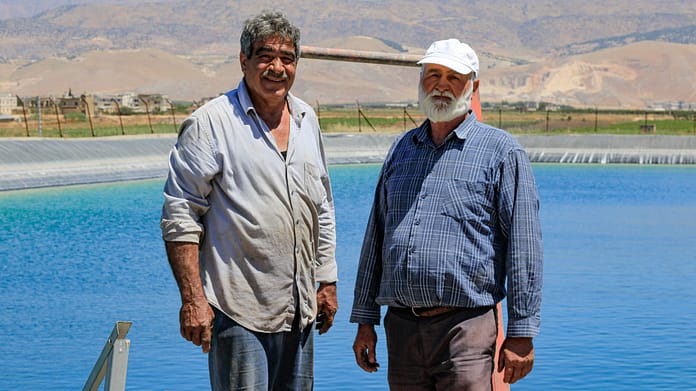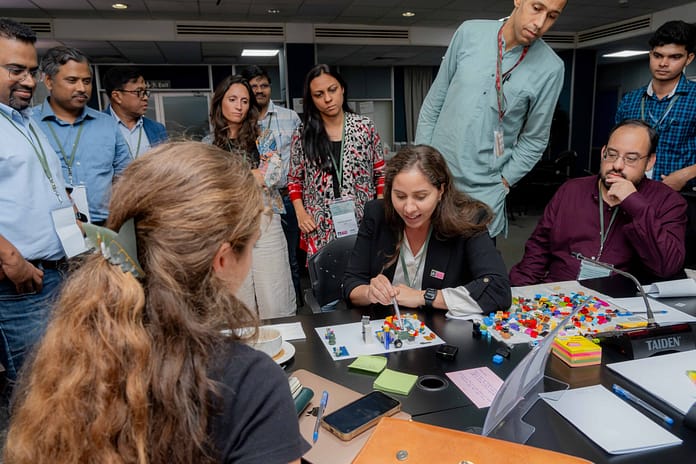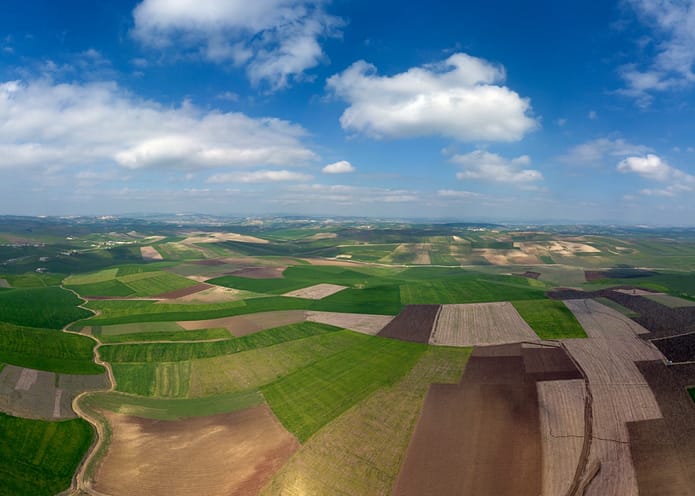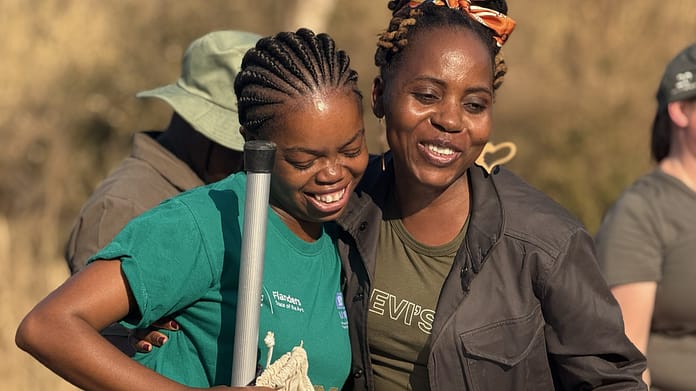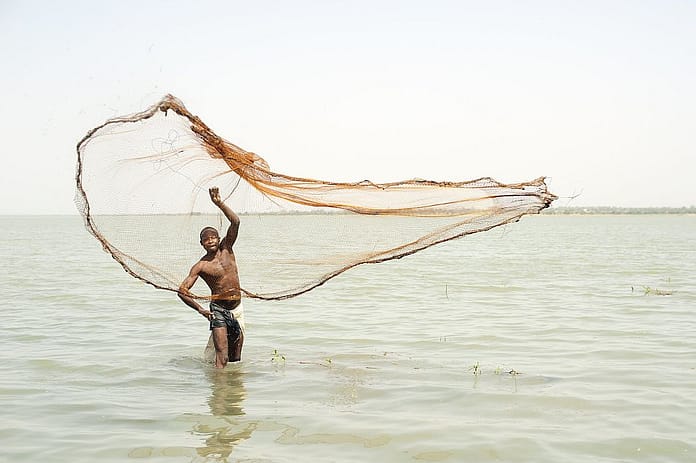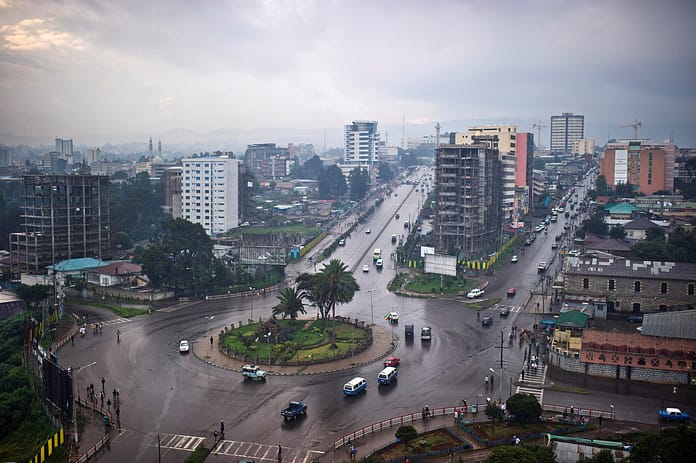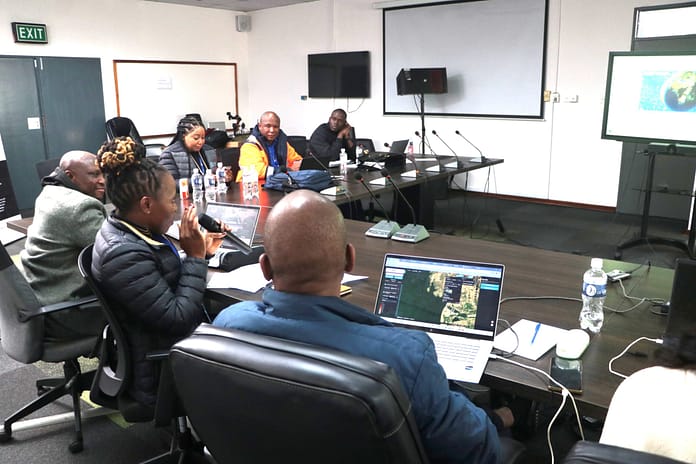In the heart of Africa, where rivers carve lifelines across vast landscapes and rainfall dictates prosperity, a quiet revolution is unfolding. At its core lies a powerful alliance of digital innovation, satellite data and human expertise, working together on a vision for a water-secure future for the continent.
Spanning seven months, over 110 experts from eight African nations came together in Hawassa, Ethiopia, Accra, Ghana and Chibombo, Zambia, to leverage digital innovation to generate accurate, real-time data on water availability, demand and usage. Their shared mission was to safeguard water resources for generations to come.
Incubators of innovation
Organized by the International Water Management Institute (IWMI) under the Digital Innovations for Water Secure Africa (DIWASA) project, the workshops were devised as incubators for innovation. Policymakers and researchers were immersed in the Digital Earth Africa (DE Africa) platform to gain the necessary skills to access and use cutting-edge water data products.
Following a successful first phase from 2020 to 2023, DIWASA continues through 2027 with a focus on water accounting and water resilience. Therefore, DIWASA II is not just about technology, but about empowering people. By developing digital tools, strengthening capacity and integrating water products into the DE Africa platform, the project is equipping African experts to make smarter and faster water management decisions.
Hands-on digital discovery
The workshops in Ethiopia, Ghana and Zambia were hands-on exploration into the power of digital technology by: first, navigating the DE Africa Sandbox where participants learned how to analyze water trends, monitor irrigation schemes and predict drought-prone zones; second, coding for impact using Python programming sessions that gave attendees the tools to manipulate vast datasets, turning raw satellite imagery into actionable insights; and third, tackling real-world challenges through developing case studies, applying digital tools to issues such as tracking water availability in Ghana’s Volta basin, assessing flood damage in Burkina Faso and monitoring environmental changes along Ghana’s coastline.
With a knowledgeable team of trainers, the practical exercises reinforced participants’ learning and boosted their confidence in using the DE Africa platform for water management applications. The group exercises during the training helped to foster teamwork and promote collaboration among professionals from different backgrounds.

Birtukan Abebe from Ethiopia’s Haramya University’s Institute of Technology shared her enthusiasm. “This training was a game-changer. Visualizing soil moisture in the Meki-Ziway irrigation scheme and analyzing rainfall trends over the Awash Basin was incredible. The possibilities are endless.”
Jacob Agyekum from the Water Research Institute and a part-time lecturer at Ghana’s Kwame Nkrumah University of Science and Technology added, “DE Africa Sandbox provided me with in-depth expertise to analyze large remote sensing datasets for climate studies. I am looking forward to leveraging these user-friendly platforms to develop climate, land cover changes and coastal erosion tools.”
From knowledge to action
While the training sessions have ended, the learning journey continues, and the real work has just begun. Participants now work together to develop and refine their own use cases with IWMI’s continued support.
What started as classroom exercises has evolved into real-world solutions which will revolutionize how water is allocated.
For example, Ethiopia’s Ministry of Agriculture and Ghana Irrigation Development Authority are mapping irrigated and rainfed lands for efficient planning. In Ethiopia, for flood prediction and risk management, the Ministry of Water and Energy is using historical information on floods to create early warning systems for vulnerable regions.
In addition, to track lake levels and combat soil salinity, some teams are developing monitoring tools and soil salinity detection systems. This has gained the interest of private agribusinesses eager to apply insights and improve productivity.
To sustain this momentum, IWMI will continue to guide participants on a regular basis to ensure that ideas translate into practical applications, reinforcing the power of digital tools in real-world water management strategies. Many of these use cases are now gaining traction beyond their initial scope, informing national policies and influencing regional water governance frameworks.

A continental shift
For Kenneth Mubea, DE Africa Capacity Development Lead, the momentum is undeniable. “The knowledge gained here is already making waves across Africa. With continued webinars and expert guidance, participants are transforming theory into practice and bring these digital tools into their organizations and reshaping water management strategies.”
DIWASA’s efforts are transcending beyond national borders. Ethiopia’s progress now serves as a blueprint for similar projects in Burkina Faso, Ghana and Zambia. In October, practitioners will further exchange innovations and scale their solutions continent-wide during a Pan-African Community of Practice symposium.
Mitulo Silengo, Senior Lecturer at Zambia’s Mulungushi University, summed it up: “We are no longer just consumers of data — we are creators of solutions. The DIWASA initiative has opened new doors we never imagined. I found scripting in Python particularly exciting. It’s empowering to take control of water data at this level.”
In returning to their workstations, these professionals carry the mission to use digital innovation to drive Africa’s water security forward. With DIWASA’s unwavering support, these efforts are shaping how the continent’s water is managed using data, foresight and resilience for the future.







